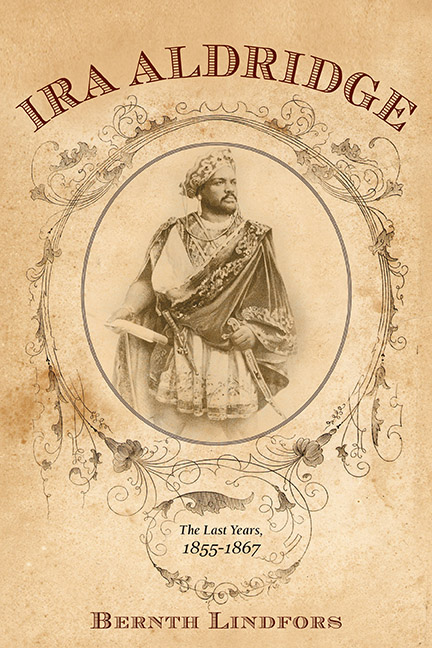Book contents
- Frontmatter
- Contents
- List of Illustrations
- Acknowledgments
- Abbreviations
- Introduction
- 1 Readjusting to Britain
- 2 Crim. Con.
- 3 On the Road Again
- 4 Stockholm
- 5 The Second Continental Tour
- 6 Pest and Buda
- 7 A Short Break
- 8 The Third Continental Tour
- 9 Home Again
- 10 The Fourth Continental Tour
- 11 The Fifth Continental Tour
- 12 The Sixth Continental Tour
- 13 Taking a Break
- 14 The Seventh Continental Tour
- 15 Another Break
- 16 The Eighth Continental Tour
- 17 The Ninth Continental Tour
- 18 Final Acts
- 19 Postmortem
- Notes
- Selected Bibliography
- Index
- Frontmatter
- Contents
- List of Illustrations
- Acknowledgments
- Abbreviations
- Introduction
- 1 Readjusting to Britain
- 2 Crim. Con.
- 3 On the Road Again
- 4 Stockholm
- 5 The Second Continental Tour
- 6 Pest and Buda
- 7 A Short Break
- 8 The Third Continental Tour
- 9 Home Again
- 10 The Fourth Continental Tour
- 11 The Fifth Continental Tour
- 12 The Sixth Continental Tour
- 13 Taking a Break
- 14 The Seventh Continental Tour
- 15 Another Break
- 16 The Eighth Continental Tour
- 17 The Ninth Continental Tour
- 18 Final Acts
- 19 Postmortem
- Notes
- Selected Bibliography
- Index
Summary
During the first six months that Aldridge resumed touring in Britain, he is known to have performed at least 109 times in three types of plays: melodramas (40), farces (35), and Shakespeare (34). In his remaining fifteen months on tour, the pattern remained roughly the same, except that the melodramas (107) and farces (104) now outnumbered the Shakespearean productions (78) by a ratio of approximately three to one instead of two to one. This was a profound change from what Aldridge had experienced on the Continent, where he had been called on to specialize in playing Shakespearean roles almost exclusively. British provincial theaters could not survive on Shakespeare alone. They had to offer a wider variety of entertainment to their customers.
The melodramas Aldridge performed most frequently were Thomas Morton's play The Slave, Edward Young's play The Revenge, and Aldridge's own adaptation of The Black Doctor! or, The Fated Lovers of Bourbon, a French play by Auguste Anicét-Bourgeois and Philippe François Pinel Dumanior. The first two of these were old chestnuts dating back to the struggle to end slavery. The French drama offered a more romantic treatment of race and class in a different national setting. Reactions to Aldridge in these roles reveal how provincial theatergoers in the middle of the nineteenth century regarded him.
Gambia in The Slave was a role demanding a great variety of emotions and attitudes, some of which ran counter to conventional notions of African temperament and character. Gambia is a slave who serves his master faithfully, saving his life, suppressing an insurrection among his slaves, rescuing his child, and later selling his own freedom to secure his master's release from debtor's prison. He is a wholly admirable paragon of virtue who sacrifices himself for those he respects, loves, and serves.
A reviewer in Plymouth observed that Aldridge's portrayal of Gambia showed
how the fierce passions of the savage African can be subdued to softness, pity, and the noblest generosity, by touching with kindness the latent springs of his better nature. It is a part which gives a wide scope to the display of various feelings.
- Type
- Chapter
- Information
- Ira AldridgeThe Last Years, 1855-1867, pp. 32 - 46Publisher: Boydell & BrewerPrint publication year: 2015



